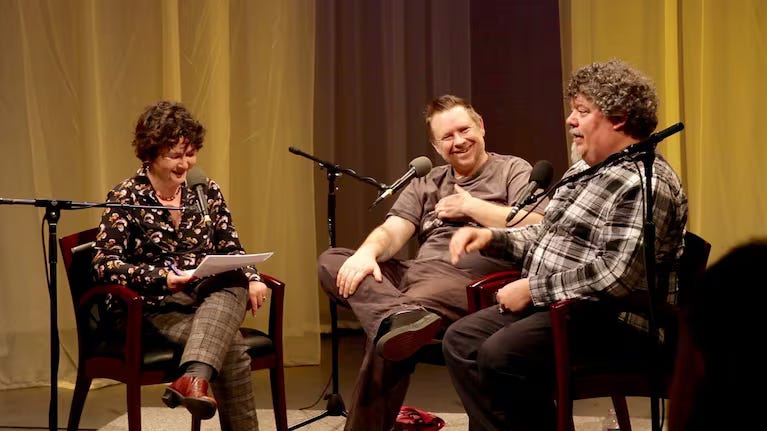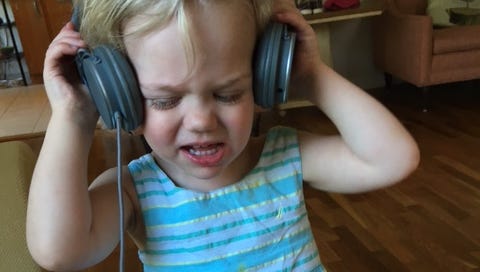In 2017 I was on OPB radio talking about Elliott Smith’s Either/Or album alongside Kill Rock Stars Records’ founder, Slim Moon. I think it was there that I had the first thoughts about what I’m going to get into here. This is by no means an incredibly thought out theory or term paper on the subject, but it’s more of an instinct based on what I’ve seen as a music fan who has made records as an artist, engineer, producer; has worked at a record distributor; has been a radio music director; has written record and concert reviews; and has interviewed massively famous musicians and ones no one has heard of that has led me to this realization. And it might be a realization that is obvious to others; I don’t know. It’s just my thoughts.

With the categorization, promotion, and discussion of music, and how this music reaches the average listener, somewhere along the way some 40 years ago (or more) it went horribly wrong. Slim and I were sitting there onstage talking about Either/Or, a very good album by any standards and one that has reached hundreds of thousands of listeners over the last 27 years, and it hit me – what really is the difference between the music on this album and hundreds of other albums that we accept as classic rock or the best singer/songwriters? You know, all the stuff that’s been shoved down our throats since 1963 or so. Why wasn’t this music, in 1997, shuttled right onto radio between The Beatles and Neil Young and Bob Dylan and The Zombies?
With payola-based radio play dominating the era I grew up in, record labels flush with cash, and questionable music journalism from Rolling Stone and the like, there soon was codified a set of rock music titans that would basically dominate the world’s attention for the next 50 years. And, effectively, the door was then shut. Sure, the “classic rock” radio door opened a few times for Guns N’ Roses, Nirvana, or Soundgarden. But what of these artists that were less “rock”? If an artist like Elliott Smith had made records for a major label in the 1970s, they certainly would not have been tossed into an “indie rock” or “college radio music” trench where their careers could only go so far before hitting a ceiling. Why did radio in 1997 continue to play the same Crosby, Stills and Nash songs when there was new music out there that could sit right alongside it and turn people onto something new, now, and exciting? Someone you could see on tour? Someone that would be making more albums (hopefully).
Growing up in the Bay Area, we’d have to constantly hear how San Francisco had created one of the greatest music scenes of the late-’60s rock era. Here we all were playing clubs in the same town that had fostered creative groups like Jefferson Airplane, Creedence Clearwater Revival, and Moby Grape. It was less than 20 years after the “Summer of Love,” and local mainstream journalists would still just completely ignore most of the new artists. Radio play was relegated to a few college stations that usually had such disparate block programming that constant listening was near impossible. Any good rock bands that had come along right before us had been labeled punk or new wave, and frequently relegated to little exposure. Shit, you’d hear Tom Petty or Bruce Springsteen, and the national media would call them new wave even though both artists had been writing songs since the ‘60s. What the fuck?
Mainstream media, record label executives, corrupt radio, and corrupt concert promoters, and all other sorts of small minded morons ruined music as soon as they could codify it and sell the same thing back at us for the next 50 years. Cracks would appear, and sometimes great artists reached further than anyone would expect, but overall the generation I came up with in the music world was treated like silly little babies by the idiots in power; especially in America. “Oh, how cute! Underground music, how quaint!”
Sure, maybe a world that pushes you away forces us to start our own record labels, to take over radio stations, to start magazines, to book our own shows, and to (at least) control our own destinies. But the door that I saw the tail end of closed too soon. A lot of good music got ignored in the time it was being created. And I’ve watched it happen like this for decades. And that’s the really sad part. Open the fucking door.






Also, the Corporate Uniparty decided to consolidate radio stations in 1996. And NPR ramped up their cold war on any community station on the left side of the dial.